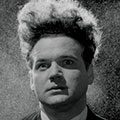The perils of critical disagreement in the age of Facebook:
Asides
In Seth Keen’s Lectorial presentation this week he mentioned that narrative films are generally governed by temporal relations, but in non-narrative film the governing force is often spatial. That is, rather than following a cause-and-effect procession, the various elements of an experimental film can work together to create a “space” in the audience’s mind.
A couple of years ago I read a reddit AMA with some of the crew that work on David Attenborough’s nature documentaries. Attenborough’s films aren’t strictly non-narrative, because they have such prominent narration and they’re generally constructed as a narrative film with characters, settings, etc., but the material they shoot could easily be compiled into an observational documentary in the style of Frederick Wiseman if they so choose.
Anyway, I’m a huge Attenborough fan so I read the entire AMA with glee, but one thing in particular stuck out to me: I discovered that in Attenborough’s films (and most nature documentaries) the sound is recorded entirely separately from the video. So when you see amazing video of a bird imitating human noises, chances are it’s actually a bit of a cheat and they’ve just layered audio of one bird over footage of a different bird.
I’d never really given this a conscious thought before but it makes sense in hindsight, because unless you have an incredibly sensitive directional microphone attached to each camera there’s no way you can record the sound of, say, a lion from 300m away and have it sound as crystal clear as it does in the finished product. I guess you could consider it a kind of foley, in a way… where the foley artist is an animal.
Anyway, the point of all this is that the result is a spatial relationship between all the pieces of material (audio and video), which is put together into a whole by the audience in their minds. This is another example of closure, which was discussed early in the semester.
One of the main things I’m learning in Media 1 so far is that so much of the work in making a text coherent is actually done by the audience. Very strange.

